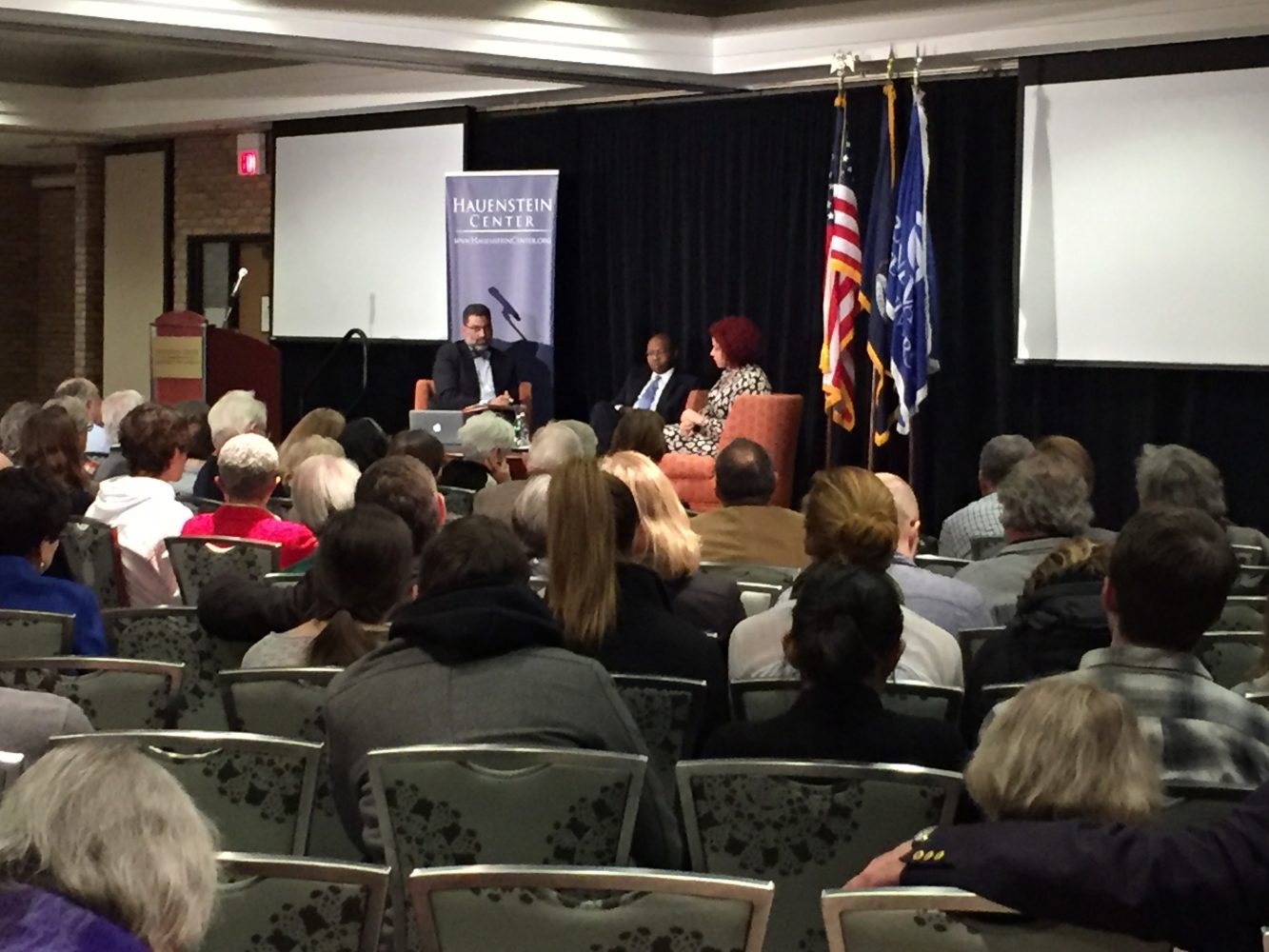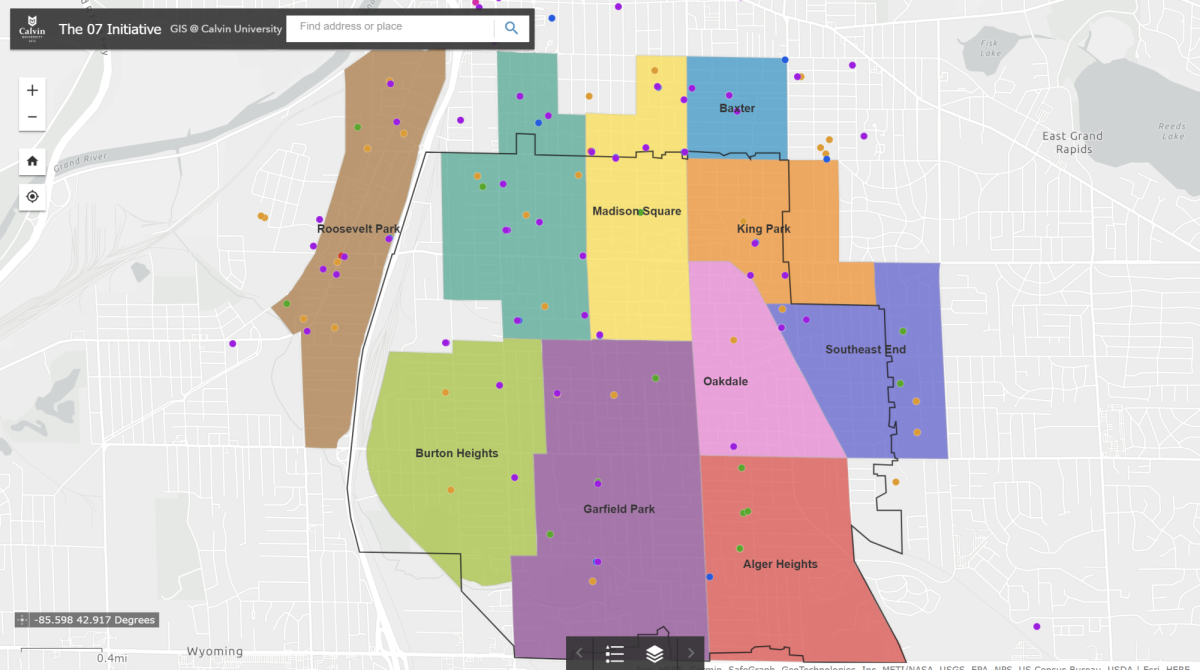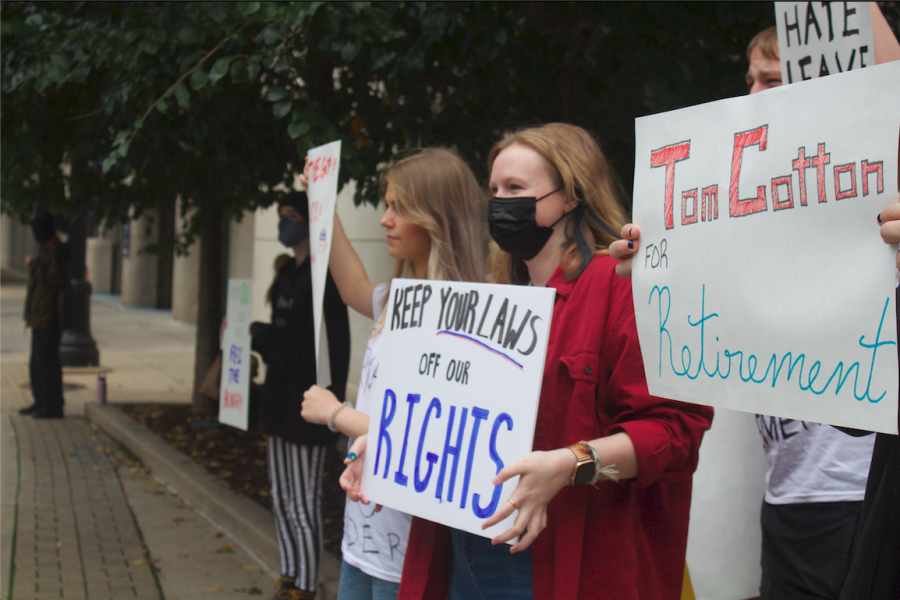As a part of Grand Valley State University’s Common Ground Initiative, a series that seeks common values in our politically divided culture, GVSU hosted Nikole Hannah-Jones and Jason Riley to speak on the topic “Race and the American Dream” last Tuesday, Jan. 17.
Riley is a senior fellow at the Manhattan Institute and a member of the Wall Street Journal editorial board. Hannah-Jones is a staff writer for the New York Times magazine. She won a Peabody award in 2016 for her reporting for “This American Life” on school segregation.
The two accomplished black journalists faced off in a discussion on the state of “the American dream” and its intersections with race.
In Riley’s view, the American dream is alive and well, especially for black Americans. Riley pointed to the progress that’s been made, particularly due to the civil rights movement, and said that the opportunities are out there for blacks to succeed, if they will take them.
To Hannah-Jones, however, “race and the American dream have been in opposition” throughout America’s history. She says black America has had to form its own definition of the American dream; for black Americans, the American dream is to simply be treated as full citizens of their country.
The conversation dug deep into the racial disparities in education and the extent to which racism affects these educational outcomes.
The two speakers clashed over the role that integration plays in school success. “This idea that the focus should be on the racial makeup of the school and not on the performance of the school” frustrates Riley, who asked why people assume that black children can only learn if they are sitting next to white children. Riley pointed to majority black schools that have high success rates.
But Hannah-Jones, who has done extensive reporting on the issue of school segregation and integration, explained that resources like money and teachers follow white students.
Looking back on the history of school reform, she argued, “there has been one school reform policy that has closed the achievement gap: integration.” In 1988, the peak of school integration, the achievement gap between white and black students was the narrowest it has ever been. Hannah-Jones lamented “the lack of political will to [implement] that one reform that we know works.”
Riley argued that the election of a black president shows that the opportunities for blacks to have power in society already exist, but individuals need to make better choices and take those opportunities, whereas Hannah-Jones reminded the audience that our country is only one generation out of legal apartheid, and thus racist structures and social norms are naturally still pervasive.
Riley lamented a national discourse that encourages race consciousness and socializes black people and people of color to see themselves as the victims of a system. Thus, Riley argued that the solution to racial disparities in society needs to come from a change within black culture.
Hannah-Jones retorted, “I reject the notion that there is something inherent in poor black culture that has led to racial disparities.”
The moderator asked a final question: how can we work together to address this issue of race?
In the end, Hannah-Jones and Riley both agreed that political empowerment for blacks has not led to economic empowerment for blacks, and this is a problem for society.
The Common Ground Initiative is a project of the Hauenstein Center for Presidential Studies at GVSU.










